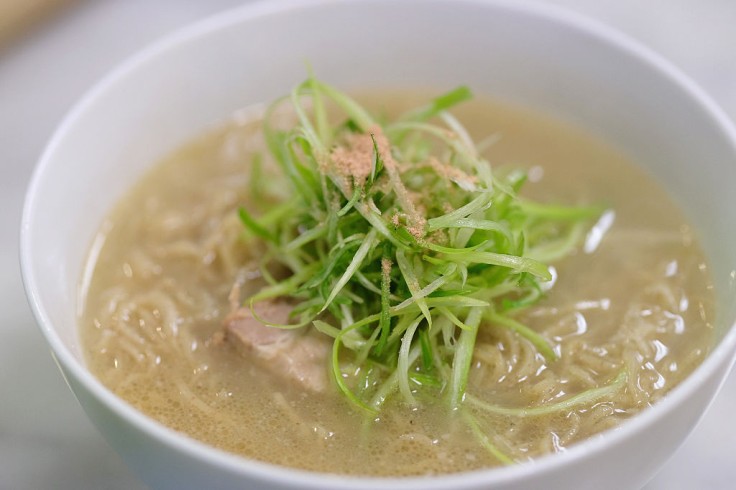
While vaccination remains the best way to prevent a virus infection, alongside masking and social distancing in public places, the foods you eat during this public health crisis may also alleviate your risks or help with your recovery if you develop COVID-19 symptoms.
Dr. Robert G. Lahita, St. Joseph Health's Director of the Institute for Autoimmune and Rheumatic Disease, said that people with COVID-19 symptoms might not have any appetite for food, regardless of the COVID variant. If they contracted the Omicron variant, they might not like to eat because swallowing any food, including liquids, would be too painful.
However, the body will need to be nourished to fight the virus. Here are some doctor-recommended foods to eat for COVID-19 symptoms:
1. Yogurt
Lahita said that yogurt is soft and cold, providing relief for a burning throat. Yogurt is also filled with protein that will keep the patient full. If you're up for it, Lahita also recommends cutting up some bananas and adding this to the yogurt as a source of potassium.
According to a study in Food Research International, highly fermented foods like yogurt may reduce the severity of the COVID-19 symptoms. Yogurt is also rich in probiotics that help with the gut's microbes that directly impact the body's immune system.
2. Broth
The doctor also recommended broths like chicken, wonton, or egg drop. Like yogurt, these soups are rich protein sources and will provide the extra hydration that a sick body needs to get better from a virus. According to nutritionist Haylie Pomroy, soups are also easy to prepare, so patients who feel weak to work in the kitchen will not need to exert so much effort.
At the very least, adults need two liters of fluids per kilogram of body weight in their daily diet. If you have COVID-19 symptoms, dehydration will be expected, so if you observe your urine turning yellow, hydrate with soup and drink a lot of water.
3. Fish with Omega-3 Fatty Acids
Salmon, cod, sardines contain high omega-3 fatty acids that lower inflammation and deliver an antiviral effect. These foods are also excellent sources of vitamin D, which helps the body deal with respiratory infections, according to Dr. Adrienne Youdim, an internist and weight loss expert.
If you enjoy fish with olive oil, then it's all for the better. Youdim said olive oil has an abundance of polyphenols that are anti-inflammatory, antioxidant, and anti-thrombotic. This will help the body boost its defenses against the COVID-19 symptoms.
4. Plant-based Proteins
Nuts and seeds, tofu, chickpeas (hummus), and beans are just some of the richest sources of plant-based proteins, which can help maintain the muscle mass intact when you're not doing much physical activity because you're not down with COVID. If you're sick, your body is also burning more fuel as it works to recover, so if you don't eat enough proteins (fuel), you will feel more fatigue.
Dr. Nicole Roach of Lenox Hill Hospital advised patients to focus on plant-based proteins if they do not have their normal appetite back just yet due to their COVID-19 symptoms. While animal protein sources are also good, plant-based sources keep the inflammation down.